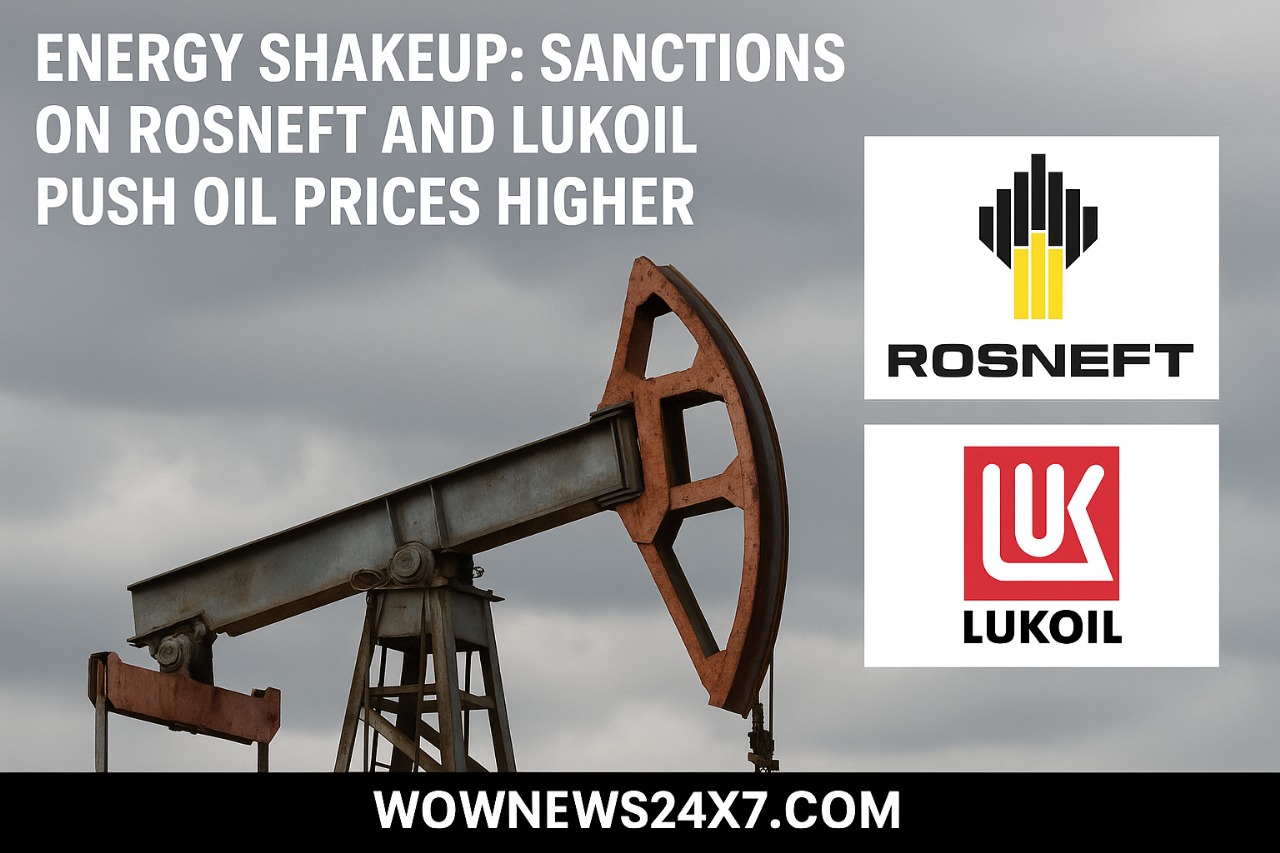The US Treasury has sanctioned Russia’s largest oil companies, Rosneft and Lukoil, aiming to weaken Moscow’s war financing amid the Ukraine conflict. This action triggered a surge in global oil prices by over 3%, raising concerns around supply disruptions and prompting nations like India to reconsider their Russian oil imports.
In a decisive policy shift amid ongoing tensions in Ukraine, the US administration imposed fresh sanctions targeting Russia’s two biggest oil producers, Rosneft and Lukoil. These firms collectively export over 3 million barrels daily, representing nearly half of Russia’s oil shipments worldwide. The sanctions aim to curtail Russia’s ability to fund its military operations by cutting into critical energy revenues, which constitute about 25% of the nation’s budget.
President Donald Trump announced the sanctions following the cancellation of a planned summit with Russian President Vladimir Putin, citing frustration over stalled peace efforts. Treasury Secretary Scott Bessent emphasized the US commitment to intensify pressure on Moscow, urging allies to enforce similar measures.
Notable updates:
-
Oil prices jumped nearly 3-5% post-sanctions announcement; Brent crude neared $66 per barrel, while US crude rose above $60.
-
The sanctions blacklist Rosneft and Lukoil, along with their numerous affiliates, restricting foreign transactions and financial access.
-
India and China, major buyers of discounted Russian crude, face challenges. Indian refiners are preparing for possible cutbacks to comply with sanctions.
-
Russia’s oil revenues have already declined 21% compared to last year but remain vital for war funding.
-
European Union followed with its own sanctions, including a ban on Russian liquefied natural gas imports by 2027.
-
Market analysts warn of potential supply tightness due to these restrictions, possibly pushing oil prices closer to $70 a barrel.
-
OPEC+ continues elevated production, but spare capacity is limited, limiting cushion against supply shocks.
The move reflects rising US determination to leverage energy sanctions as a strategic tool in driving an end to the protracted Ukraine conflict. However, the immediate global supply impact depends on how swiftly buyers adjust and alternative supplies ramp up. The oil market remains volatile amid these geopolitical developments.
Sources: Reuters, BBC, Bloomberg, CNN, CNBC, New York Times

